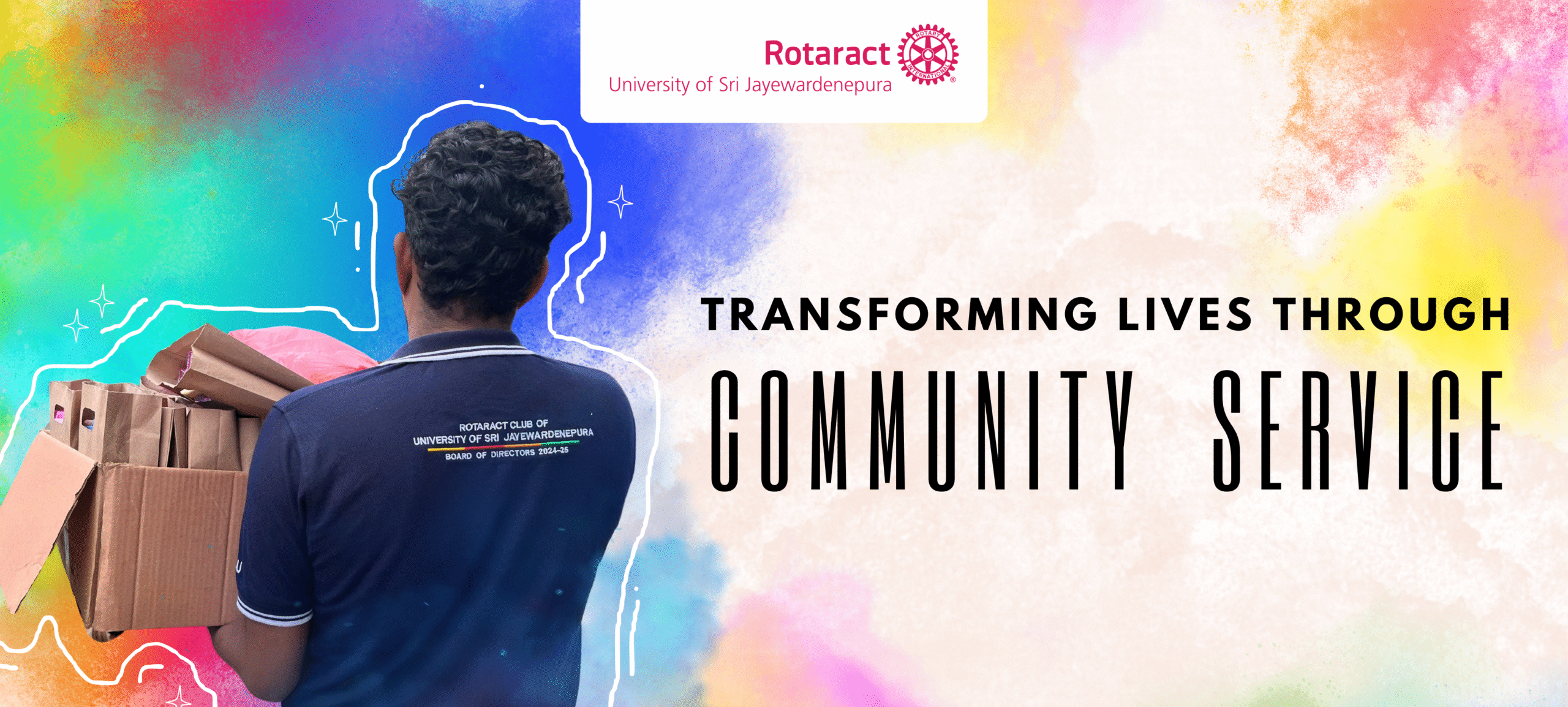Written by: Rtr. Yasara Dewmini
Community service is a powerful force that brings about tangible change in individuals and communities. At its core, it fosters a culture of empathy, unity, and collective responsibility, inspiring people to work toward a common goal—uplifting those in need. By engaging in community service, individuals gain a deeper understanding of societal challenges, develop problem-solving skills, and nurture compassion. Volunteers often experience personal growth, learning the value of teamwork and leadership while strengthening their sense of social responsibility. Moreover, the impact of community service extends beyond those who serve; it profoundly affects recipients by improving their quality of life, providing essential resources, and offering hope for a better future. From providing education to underprivileged children to conducting mental health awareness programs, every initiative contributes to a more inclusive and equitable society. By addressing pressing issues such as poverty, healthcare access, and environmental sustainability, community service acts as a catalyst for long-term transformation. Many of these efforts align with the United Nations’ Sustainable Development Goals (SDGs), including Goal 1: No Poverty, Goal 2: Zero Hunger, Goal 3: Good Health and Well-Being, Goal 4: Quality Education, and Goal 10: Reduced Inequalities.
Beyond fulfilling immediate needs, community service fosters social cohesion and strengthens the fabric of society. When people from different backgrounds come together to serve a common purpose, they break barriers of race, religion, and economic disparity, fostering a sense of unity and mutual understanding. For instance, disaster relief efforts not only provide aid to those affected but also create strong networks of support that remain long after the crisis has passed. Similarly, mentorship programs for young students help bridge educational gaps, providing opportunities that empower the next generation. By addressing systemic issues such as gender inequality (Goal 5: Gender Equality) and economic disparity (Goal 8: Decent Work and Economic Growth), community service initiatives create an environment where progress is shared, and no one is left behind.
To ensure that community service initiatives remain effective and sustainable, organizations must prioritize long-term planning, community involvement, and capacity building. Sustainability in service projects can be achieved by focusing on empowering local communities rather than providing temporary aid. This involves creating self-sustaining programs, such as skill development workshops, microfinance opportunities, and educational initiatives, that enable individuals to become self-reliant. Collaboration with stakeholders including local governments, businesses, and NGOs can also help secure funding, resources, and expertise to sustain long-term projects. Furthermore, encouraging youth engagement through volunteer programs fosters a new generation of socially conscious leaders who will continue the cycle of giving back. Sustainable community service projects also contribute to environmental preservation (Goal 13: Climate Action), responsible consumption (Goal 12: Responsible Consumption and Production), and access to clean water and sanitation (Goal 6: Clean Water and Sanitation).
Another key aspect of sustainability is innovation. Integrating technology and modern solutions into community service projects can amplify their impact and longevity. For example, digital literacy programs equip underserved populations with essential skills for the modern job market, helping break the cycle of poverty. Similarly, sustainable farming initiatives promote food security while reducing environmental degradation. Social enterprises, which combine business strategies with community service, offer a model for financial sustainability while addressing critical issues. By leveraging technology, fostering entrepreneurship, and embracing innovative solutions, service projects can evolve to meet the changing needs of society.
Ultimately, community service is more than just an act of kindness; it is a transformative force that shapes the future of societies. When service initiatives are designed with sustainability in mind, they create lasting positive change that benefits generations to come. By aligning these efforts with global development goals and fostering partnerships, we can ensure that community service remains a driving force for social progress. In an interconnected world where challenges such as poverty, inequality, and climate change persist, the role of community service in building resilient and self-sufficient societies has never been more critical. It is through collective action, compassion, and innovation that we can make a meaningful impact and work toward a world where no one is left behind.
Youth play an instrumental role in driving community service initiatives, particularly in healthcare and social welfare projects. As the most dynamic and energetic segment of society, young individuals bring fresh perspectives, enthusiasm, and innovation to initiatives aimed at uplifting vulnerable communities. Their involvement not only amplifies the impact of such projects but also ensures their sustainability by fostering a long-term culture of service. In initiatives like Diviyata Diviyak 4.0, youth volunteers contribute by organizing health awareness programs, coordinating donation drives, and facilitating outreach efforts. By working closely with healthcare professionals, they bridge the gap between communities and essential medical services. Similarly, in mental health-focused projects like the Reachout Initiative, young volunteers take the lead in advocating for mental well-being, breaking stigmas, and providing educational resources to those in need. Engaging youth in these efforts aligns with the United Nations’ Sustainable Development Goals (SDGs), particularly Goal 3: Good Health and Well-Being, Goal 4: Quality Education, and Goal 10: Reduced Inequalities. By encouraging volunteerism and leadership development, community service projects equip young individuals with critical problem-solving skills, empathy, and a sense of responsibility toward creating a more inclusive and healthy society.
Being involved in community service initiatives has been a deeply rewarding experience for the members of our avenue, allowing us to witness firsthand the transformative power of service. Through Reachout Initiative, our team had the opportunity to lead various mental health awareness programs. Conducting mental health awareness sessions for underprivileged school students in Colombo, in collaboration with resource persons from NIMH, Angoda, was particularly impactful. These sessions provided students with crucial knowledge on mental well-being, while fostering an environment where they felt safe discussing mental health concerns. Another significant milestone was organizing the Suicide Prevention Awareness Session conducted in partnership with Sumithrayo/NIMH, which was an online webinar open to both university students and staff. This session addressed an urgent issue, helping to break the silence around mental health struggles and encouraging open conversations. Additionally, our post and video series on men’s mental health shed light on an often-overlooked aspect of mental well-being, challenging societal norms that discourage emotional openness among men.
Beyond mental health, our involvement in Diviyata Diviyak 4.0 allowed us to contribute to healthcare accessibility for vulnerable populations. One of the most heartwarming experiences was organizing a celebration for orphaned children at the Mother Theresa Orphanage in Moratuwa, where we brought joy to young children by celebrating their birthdays collectively. Through initiatives such as mobile health clinics for primary school children and maternal health awareness programs in rural communities, we have seen the power of service in action how small contributions can create lasting impacts. The experience of interacting with diverse communities, listening to their struggles, and working toward sustainable solutions has reinforced our commitment to community service. It has also taught us that true change is not achieved through one-time efforts but through consistent dedication and collaboration.
Community service is more than just an act of giving. It is a powerful force that fosters empathy, strengthens societies, and creates sustainable change. Through initiatives like Reachout Initiative and Diviyata Diviyak 4.0, we have witnessed the profound impact that dedicated efforts can have on individuals and communities. From raising awareness about mental health to improving healthcare accessibility, our journey has been one of learning, growth, and unwavering commitment to making a difference. As we continue to serve, it is essential to inspire more individuals to take part in these efforts, ensuring that our work extends beyond temporary solutions and evolves into long-term, sustainable progress. By fostering a culture of volunteerism and collaboration, we can build a future where no community is left behind and every individual has the opportunity to lead a healthier, more fulfilling life.


0 Comments